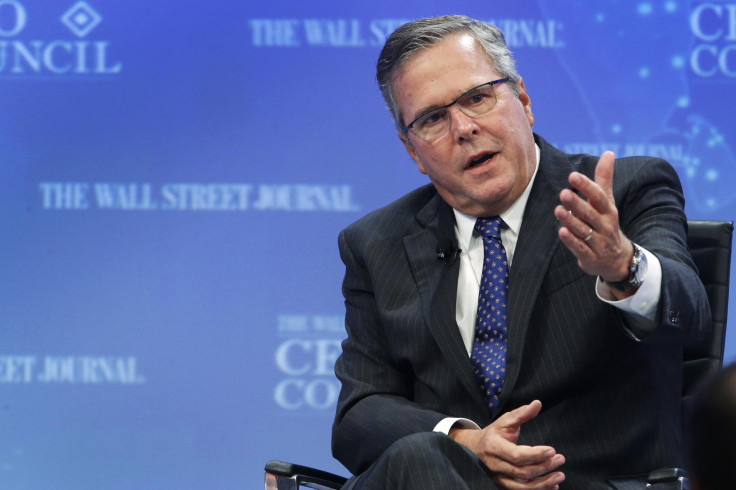Election 2016: Jeb Bush And The GOP Electability Debate

WASHINGTON – "Electability": The magic word that moderate Republican candidates use every four years to explain why they should be the party's presidential nominee. It’s the case that's sure to be made on behalf of Jeb Bush and Chris Christie (if they run) -- that unlike someone from the GOP's right wing, they can beat Hillary Clinton, or whoever else the Democrats put forward as their nominee.
It’s a fight the Republicans have been having among themselves for years, and are likely to see again in 2016. Faced with a GOP primary electorate that is significantly to their right, Bush will have to deal with criticism that he's too liberal on immigration and education, and Christie will have to fend off charges that he's too far left on guns and judicial appointments.
The electability crowd won the last two GOP nomination contests, picking former Massachusetts Gov. Mitt Romney and Arizona Sen. John McCain. Given that they both lost, the other crowd -- the ideologues -- can argue that making electability a factor hasn’t worked. The key factors are leadership and voter excitement, they'll say, not poll numbers and cautious positioning.
How the tension between electability and ideological purity plays out in 2016 could shape the Republican party for a long time.
Bush, the former Florida governor, seems poised to make an announcement soon about whether he'll be a presidential candidate. New Jersey Governor Christie hasn’t been bashful about his ambitions and it’s widely assumed he will run. In the primaries, both men are likely to talk about policy and to emphasize their allegiance with conservatives on a number of issues like taxes and and their opposition to Obamacare. But they will also point out their broad appeal, their well-known names. Their ability to get things done by working with Democrats. Their ability to raise large sums of money. Their ability to avoid making comments (see: "legitimate rape") that energize the opposition and hurt the party. Bush and Christie are both liked by Wall Street and corporate America.
In short, the message of their campaigns will be that they stand the best chance of defeating the Democrats because the other candidates (like Rand Paul and Ted Cruz, probably) are too far from the nation’s political center to be viable in a general election.
The pro-electability camp will point to Barry Goldwater, who ran as a far-right conservative in 1964 and defeated the more moderate Nelson Rockefeller in the primary. Goldwater lost in a landslide to Lyndon B. Johnson, winning only 52 Electoral College votes -- the Deep South and his home state of Arizona. The 1964 election is credited with losing the northeast for the GOP.
Establishment Republicans make up the bulk of the pro-electability camp. They have long been trying to bolster the GOP by appealing to moderates instead of hardline conservatives. Efforts to expand the party’s position on immigration and downplay divisive issues like abortion and gay marriage are part of the plan to win swing voters, Latinos and millennials.
But conservatives don't buy the electability argument anymore.
“If Republicans run another candidate in the mold of a Bob Dole or a John McCain or a Mitt Romney, we will end up with the same result, which is millions of people will stay home on Election Day,” Texas Sen. Cruz said on CNBC in October. “And if we run another candidate like that, Hillary Clinton will be the next president.”
Those who say worrying about electability produces bad candidates will point to Romney and McCain. They will also cite Ronald Reagan, who was considered much more conservative than most of the GOP at the time but won the presidency twice.
“What they’re really looking for is a leader,” Kansas conservative Republican Rep. Tim Huelskamp said. “Someone like Reagan who I thought in my opinion really exuded leadership.” He added, “That was Romney’s problem. He was not authentic. He was just some rich guy from Massachusetts. … A non-leader is not electable, but they tend to win the primaries and that tends to be what K Street and Wall Street want."
Huelskamp doesn't share the establishment's eagerness to see Jeb Bush run.
“I don’t think a dynasty works in America,” he said. “I don’t think we want another Bush. We need new faces.”
In other words, not the face of yet another "electable" loser.
© Copyright IBTimes 2025. All rights reserved.






















